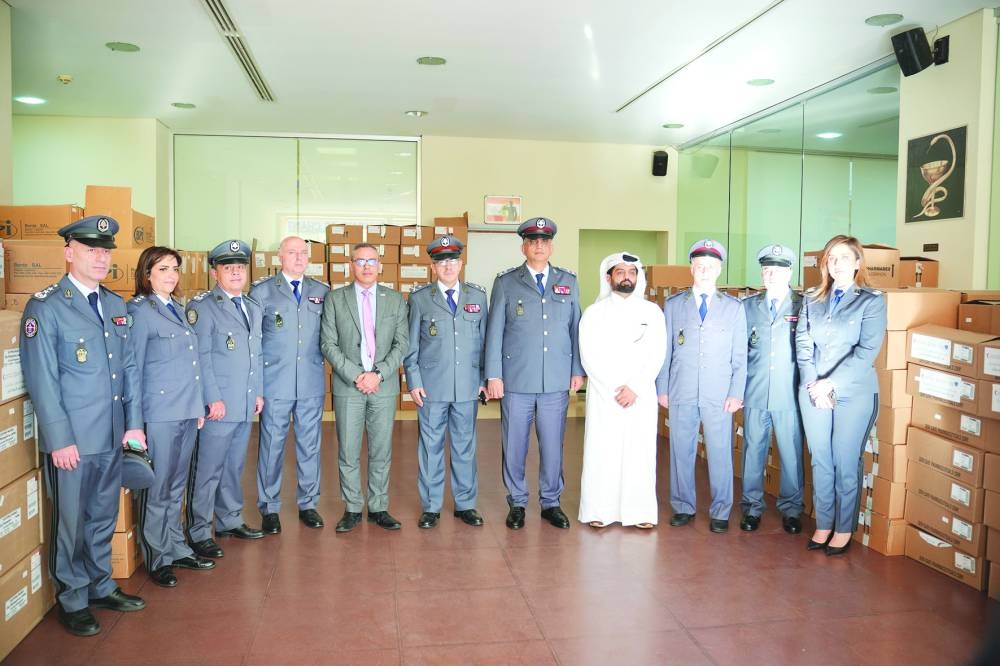As part of backing the Lebanese health sector in the face of economic challenges, two batches of vital medicines worth QR3,650,000 have recently been delivered to the Ministry of Interior (MoI) and its Ministry of Public Health (MoPH).
The grant forms part of a project funded by Qatar Charity (QC) and implemented by Qatar Red Crescent Society (QRCS).
At Sheikh Zayed bin Sultan Al Nahyan Medical Centre, the Directorate-General of Internal Security Forces (ISF) held a ceremony to receive chronic disease medications provided by QRCS and QC.
Major-General Imad Othman, director-general of ISF; Counselor Mashaal bin Mohamed al-Kuwari, representative of the ambassador of Qatar to Lebanon; Dr Mohamed al-Sousi, head of QRCS’ mission in Lebanon; Brigadier Hussein Khashfa, head of the Central Administration Unit; Colonel Ahmed Abla, commander of Beirut Police; and senior officers were present.
Maj Gen Othman thanked the Qatar embassy in Lebanon, QC, and QRCS for supporting the Internal Security Forces. He stressed the importance of this support to secure medical services for more than 150,000 policemen, family members, and pensioners.
Dr al-Sousi said: “It is a small contribution made to MoI, municipalities, and Internal Security Forces, despite the pressing needs of this sector. The support from Qatari charities shows our eagerness to back the health sector in Lebanon. I would like to thank QC for funding this project”.
Khaled al-Yafei, director of Relief and Emergency Department at QC, said: “QC will continue to support the people of Lebanon, especially at difficult circumstances. I would like to thank QRCS for undertaking this project”.
In a press conference, Dr Firas al-Abyad, the Lebanese minister of public health, received the second batch of medicines provided under the project, in the presence of Ali Mutawaa, advisor to Qatar's ambassador to Lebanon, and Dr al-Sousi.
The gift comprised 431,308 chronic disease medicine packs in the 11 categories most needed as per the list of MoPH. As much as 70% of these medicines were allocated to 240 primary health care centres across the country, while 30% were given to MoI and municipalities, to be distributed to pharmacies of the Internal Security Forces.

QC and QRCS support Lebanon's Internal Security Forces.

Lebanese Minister of Public Health Dr Firas al-Abyad addresses a press conference.
